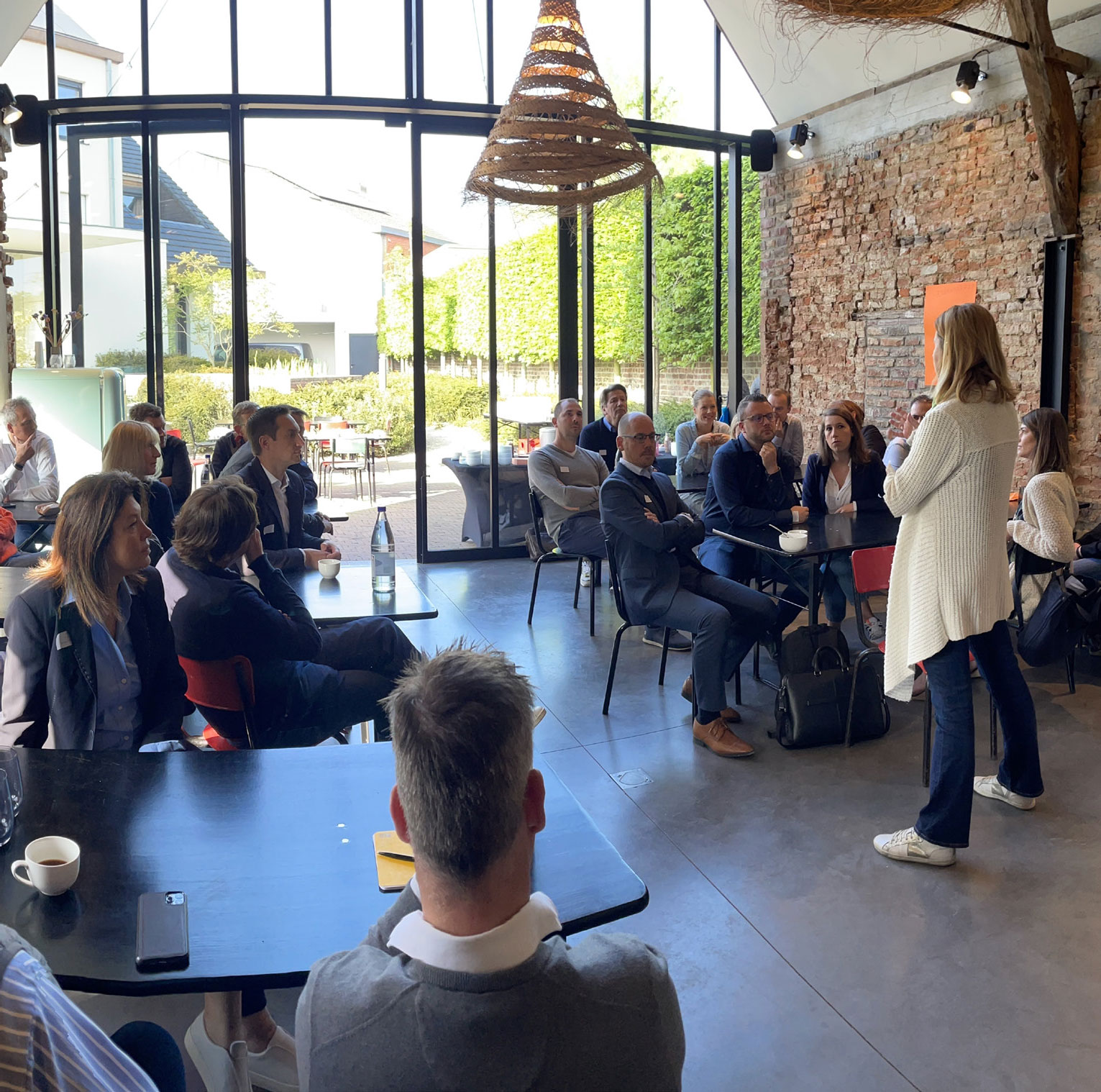
An alternative approach to implementing change in the workplace.
If you’re tired of big transformation projects amidst already overloaded operations, with limited results, then our micro-action implementation approach might be something for you.
How it works?
Step 1: Framing
As our organizations shift towards decentralized leadership and agile teams, everyone must adapt and enhance their workplace behaviors accordingly.
Step 2: Proposal
With our micro-action approach, co-created and tested with companies in our network, we introduce a minimally invasive intervention over a period of maximum six weeks that guides managers and employees on embracing new rituals, tools, values, and/or systems in the workplace.
Step 3: Results
We have discovered that this pragmatic, on-the-job approach to change is easily embraced by the workforce, resulting in a return on investment that is simply astonishing.
What are micro-actions?
- 1. Implement simple, low-cost, and non-intrusive interventions
- 2. Ensure minimal disruption with efforts that offer high and measurable impact
- 3. Operate within short, six-week sprints to maintain focus and efficiency
- 4. Not eating additional mental or attentional space (“on the job”)
- 5. Tailor interventions to specific contexts, avoiding a one-size-fits-all approach.
- 6. Suitable for application in both small team settings and across large populations.
Case: Implementing employee ownership
at Materné Verzekert
Step 1: Define a central theme
Boosting a sense of ownership in the workplace to minimize victimhood behavior.
Step 2: Define influenceable behavioral characteristics
- I prioritize personal contact over email or messaging
- I avoid procrastination at all times
- A decision is a commitment
- I always come well prepared
Step 3: Sprint & retrospect
- Each employee defined two small actions per week linked to the company’s ownership characteristics.
- Each employee participated in weekly cross-functional team retrospectives.
After three weeks, the overall results were remarkable:
Direct results
- 1. 90% of participants reported experiencing less procrastination, both personally and with their colleagues.
- 2. More than half noted a significant increase in ownership, both in themselves and their colleagues.
- 3. Over half observed that the team provided more open feedback.
Ripple-effects and new insights
- 1. Employees found the space to express their need for more positive reinforcement from their managers.
- 2. The group felt more recognized for their efforts.
- 3. They felt safer to take initiative.
- 4. Micro-actions had positive effects not only in the workplace but also in their private lives.
An eye-opener on personal and collective growth, showcasing how even the most change-resistant employees can play a pivotal role in strenghting our organization.
Oliver Swolfs, ceo Materné Verzekert
